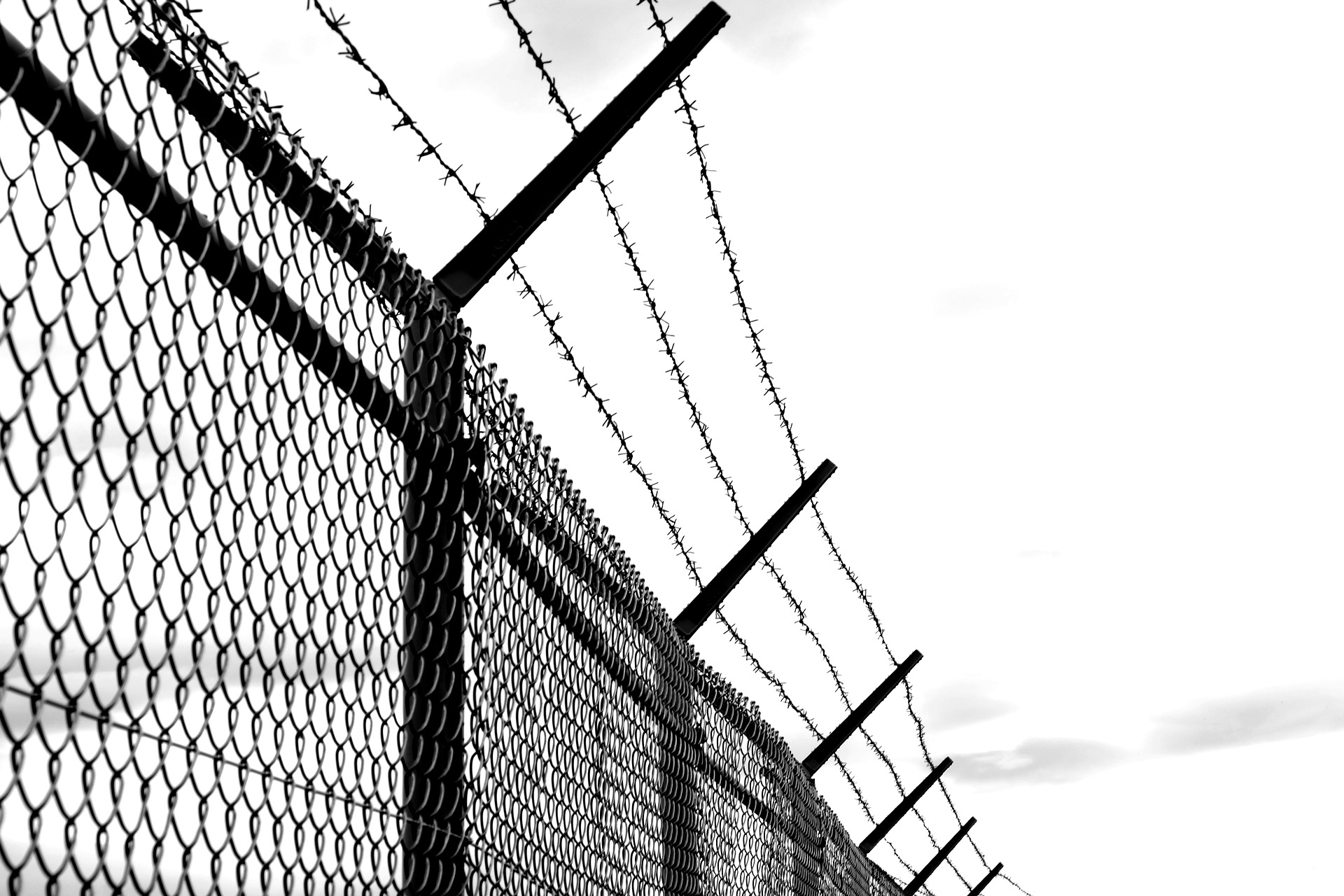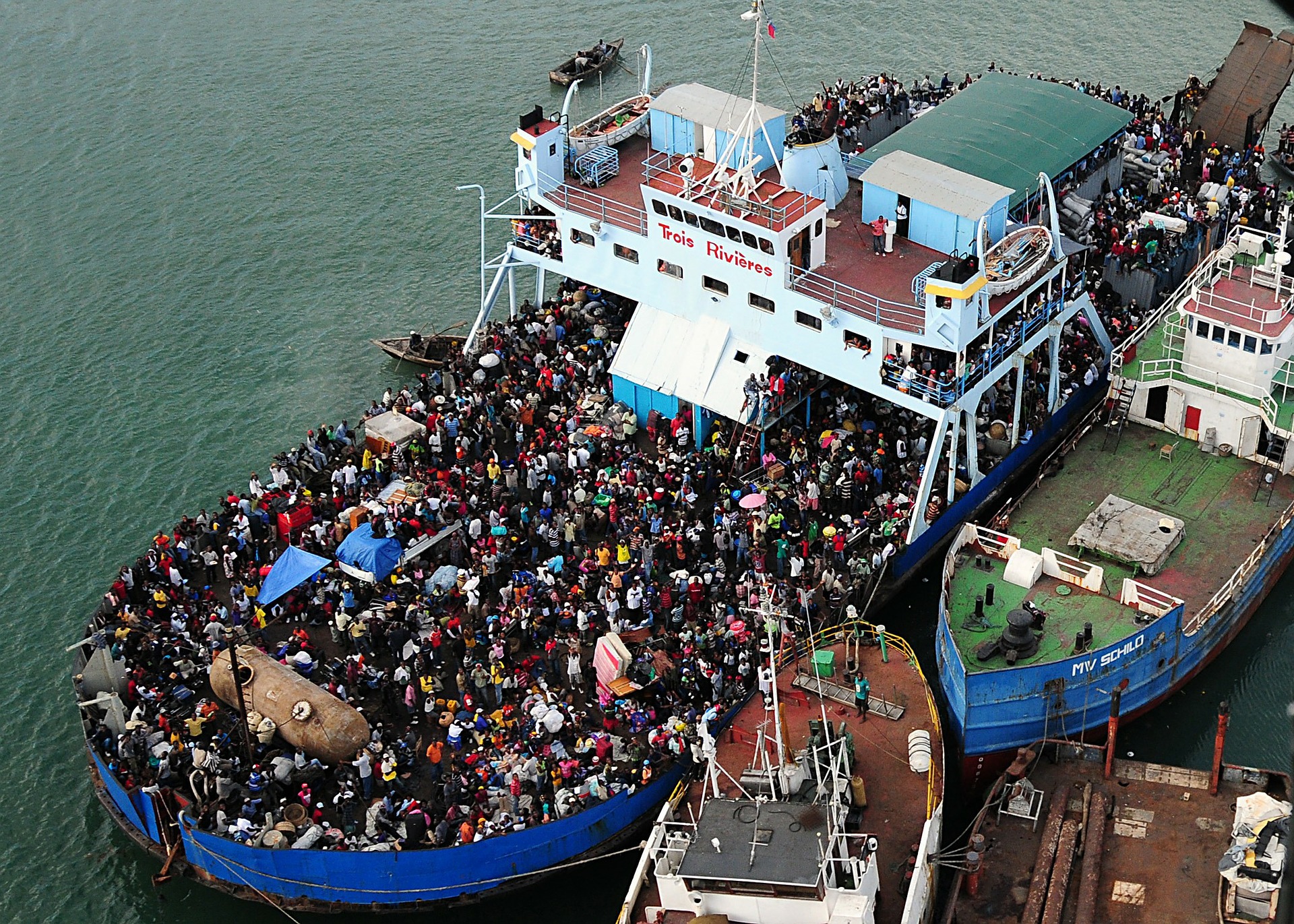The Haitian Migrant Predicament in Latin America
Mistreated everywhere they go, Haitian migrants search for dignity
In February 2021, a group of Haitian migrants traveling from Brazil to Peru were met with police violence as they attempted to cross the international border. Many of these Haitians had been living as laborers in Brazil for years. Given Brazil’s economic crisis -- partly a result of the pandemic and partly the result of a multi-year recession -- these Haitians were out of work and looking for a new host. For many, Peru was simply a stepping stone to other nations in the region -- like Mexico and Chile -- that host significant Haitian populations but are erecting ever more difficult barriers to Haitians. Why did Haitians come to Brazil -- a developing nation with vast poverty -- in the first place? Why do 14 percent of Haitians (as of 2019) live outside their homeland? Why do many other Latin American nations reject Haitians?
In 2010, Haiti suffered a devastating earthquake. Already the poorest nation in the Western Hemisphere, the earthquake served as further impetus for many to leave the nation. Lula Ignacio de Silva, Brazil’s president in 2010, visited Haiti after the earthquake and announced that Haitians would be welcomed with open arms. Two years later, the subsequent president Dilma Rousseff, reiterated that Brazil would welcome Haitians who sought temporary humanitarian protection after the earthquake and were willing to contribute to Brazilian society.
Most Haitians easily found work as laborers in Brazil as the country rode the commodities boom of the 2000s to mid-2010s to strong economic growth. In the mid-2010s, however, the Brazilian economy took a nosedive which left many of the Haitians without work. Many Haitians in Brazil left Brazil by land for the United States.
Similar to Brazil, the United States had allowed Haitians to enter the United States after the earthquake using Temporary Protective Status (TPS) which shielded Haitians from deportation given their humanitarian situation. As tens of thousands of Haitians left Brazil and other parts of Latin America by land for the United States in 2016, the Obama administration announced that any Haitian arriving at the U.S. border without a previously issued visa would be deported to Haiti.
The Obama administration's announcement came in September of 2016 as many Haitians were traversing through Mexico. Unable to enter the United States through legal channels, many opted to stay in the Mexican state of Baja California and have settled there. Many have learned Spanish and found employment. They are celebrated by the Mexican media which calls them hard-working, civil people who contribute to society as they follow the “Mexican dream”. Currently there are about 6,000 in Baja and some have gained residency in Mexico and some level of economic success. One recently published a book about their journey to Mexico that was reviewed in a major U.S. newspaper.

Despite the welcoming image in the Mexican press, many others have been unable to obtain legal status in Mexico as the nation’s immigration system continues to reject many because of supposed missing documents and other issues. One migrant claims that the immigration officers always say “come back” but never give them an appointment to legalize their status. Without legal residency, finding work is very difficult. Families live in makeshift encampments in Mexicali and Tijuana as the Covid-19 pandemic rages.
While some Haitians were leaving Brazil for the United States in 2016, still others were en route to Brazil. Despite Brazil’s flagging economy, many human smugglers (known as coyotes) have continued to promote Brazil as a place with economic opportunity for Haitians. In addition, many Haitians still live in Brazil which then serves as a magnet for other friends and families still in Haiti. In 2019 -- before Covid-19 hit but still while Brazil was in a multi-year recession -- over 10,000 Haitians entered the northern border with Guyana, a nation that allows visa-free entry for Haitians. Previously, many went through Ecuador but Ecuador closed visa-free travel to Haitians. As Chile has implemented stricter immigration controls against Haitians (as discussed below), more Haitians have gone to Brazil. Between 2012 and 2018, Haitians were the largest group of immigrants to Brazil.
Chile has recently experienced an influx of Haitians as well and, like the other nations in the region, failed to treat them with dignity. President Sebastian Pinera’s government no longer allows the issuance of visas for Haitians seeking family reunification with those Haitians who came under looser visa requirements of the past. Pinera’s government now demands that Haitians receive a tourist visa prior to arrival in Haiti. For this visa, Chile asks for bank account records and other documents that are very hard to obtain in Haiti, a near failed state. Haitians are currently the third largest immigrant group in Chile and as such there are many families seeking to reunify with those still in Haiti. As such, Pinera’s policies have not caused a decline in immigration but rather a shit toward undocumented immigration to Chile and an increase in human smuggling.
The United States, Mexico, Brazil and Chile are not close to Haiti. Moreover, Mexico and Brazil are not wealthy and Chile, while wealthy by Latin American standards, still has a monthly minimum wage of only around 450 U.S. dollars. Mexico’s monthly minimum is under 200 dollars and Brazil’s under 250. Given the low wages and distance, why are more Haitians not going back to their home island of Hispaniola and either migrating in the Dominican Republic -- where the minimum wage is around that of Brazil’s -- or settling back in Haiti itself?
While many Haitians do live in the Dominican Republic -- over a million by some estimates -- Haitians are often poorly treated by the Dominican government. In 2013, the Dominican government stripped citizenship from people born in the Dominican Republic but whose parents were Haitian. As such, many were left stateless as they had never been to Haiti and did not speak Haitian Creole. Haitian immigrants to the Dominican Republic often fare little better. Working difficult jobs such as construction, they are often scapegoated for crime and other problems. A Dominican political party, the FLP, has called the erection of a wall between the Dominican Republic and Haiti. The Dominican government also systematically deports Haitians in large numbers. During just six months in 2017, the Dominican government deported over 40,000 Haitians.
Why is there such hostility toward Haitians throughout Latin America? Studies in Brazil link negative attitudes and periodic attacks against Haitians to racism and an overall negative attitude toward refugees and poor immigrants. In contrast, Brazil has welcomed European immigration as contributing to society. In Chile, Haitians confirm similar discrimination based upon skin color and lower economic status. In the Dominican Republic, the causes of discrimination toward Haitians are similar. In addition, Haitians also speak Haitian Creole which creates a further barrier in Spanish speaking nations and Portuguese speaking Brazil.
Haitians are determined to leave Haiti and not return regardless of the obstacles in their way. If one country rejects them, they simply move to another. Haiti is the poorest nation in the Western Hemisphere beset by ferocious hurricanes, terrible to non-existent infrastructure, and a history of western subjugation that stunted the growth of the island. After winning independence from France on the back of a slave revolt, Haiti was forced to pay an “indemnity” to France for their lost slaves and land which started a debt cycle that hobbles the nation to this day. Recently, protests against a presidential power grab turned violent in what is only the latest political saga in a nation with a history of coups.

Haitians face steep obstacles in finding a place to lead a dignified life. With their own nation wracked by instability and poverty, for many the only choice is to leave the country. Unfortunately, no nation has offered Haitians what Colombia recently offered Venezuelans -- a place of legal refuge where they can integrate and contribute to society. Many Mexicans in Baja California speak of Haitians as excellent workers who follow the laws. If only their government and many others in the region saw the same value in the Haitians and gave them a chance at a life with social and economic dignity.
